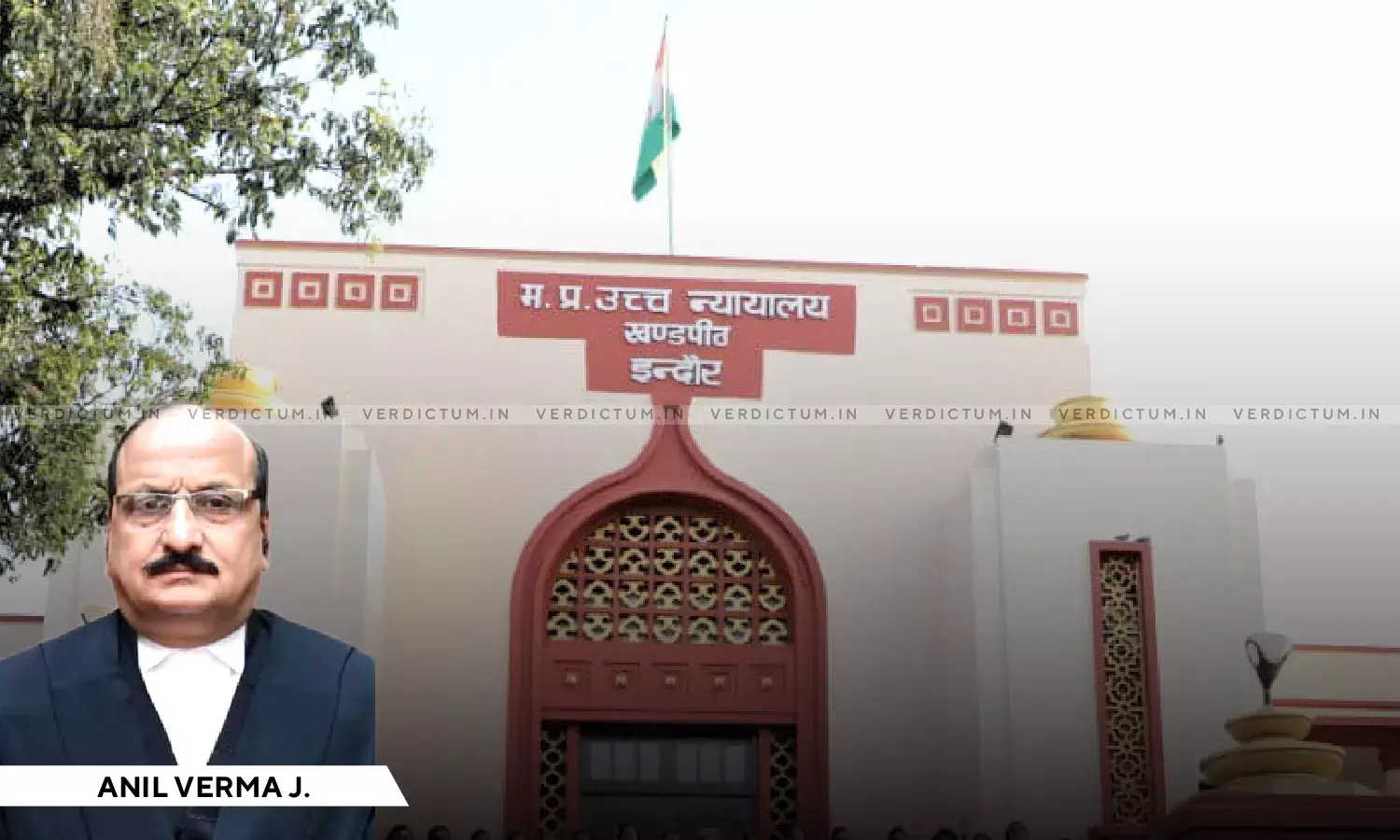Presumption Under Evidence Act Is Confined To Factum Of Death; Actual Date Of Death Has To Be Decided On Basis Of Evidence: Madhya Pradesh HC
The Madhya Pradesh High Court observed that the presumption of death under Sections 107 and 108 of the Indian Evidence Act is confined to the factum of death but silent on the actual date of death which is to be decided on the basis of evidence.
The Court was hearing a second appeal against the impugned judgment and decree whereby the civil suit filed by parents of army personnel for declaration of civil death has been partly allowed.
The bench of Justice Anil Verma observed, “The moment it is established that a person has not been heard of for 7 years, the presumption of death arises. Although the presumption under the Evidence Act is confined only to the factum of death, but is silent in respect of the actual date of death or presumed death…..Therefore, the moot question to be decided is only to the date of death of Surendra Singh on the basis of evidence available on record.”
Brief Facts-
The appellants, parents of Surendra Singh Solanki, who joined the Indian Army, report that Surendra went for training in Goa in 2010 but never returned. They lodged a missing person report and began receiving an ordinary family pension. In 2020, they were informed that they couldn't receive a Special Family Pension and arrears without a death certificate for Surendra. They filed a civil suit to declare his civil death. The trial court declared Surendra's civil death from the suit's filing date which is in 2020. The first appellate court affirmed this decision, leading the appellants to file a second appeal.
The Court mentioned the decision of the Apex court in the case of N.Jayalakshmi and others Vs. R. Gopala Pathar and another reported in 1995 Supp(1) SCC 27 and quoted, "If a person is not heard of for seven years there is a presumption of the fact of death at the expiration of seven years, but the exact time of death is not a matter of presumption but of evidence and the onus of proving that death took place at any particular time within the seven years lies upon the person who claims a right to the establishment of which that fact is essential. There is no presumption that death took place at the close of seven years."
The Court perused Sections 107 and 108 of the Indian Evidence Act and observed, “Though the provisions of Sections 107 and 108 of Evidence Act are very clear as to the rising of presumption, these sections do not throw any light upon the date on which a person can be presumed to be dead.”
The Court applied the test of preponderance of probability laid down by Section 3 of the Evidence Act, where a fact is said to be proved if the court considers its existence to be so probable that a prudent man ought, under the circumstances of the particular case, to act upon the certain supposition that it exists, then according to the Court, it would have to be held that Surendra Singh has died on July 25, 2010, or soon thereafter.
The Court noted that Surendra Singh was not in distress or disabled, and there was no reason he could not contact his family. Given that he has not contacted them since 2010 and has been declared dead by a competent Court, the Court concluded that he likely died on or shortly after July 25, 2010.
Accordingly, the Court held that the view of the Courts below that the date of filing of the present suit would be considered as the date of death of Surendra Singh is contrary to the above position of law.
Finally, the Court allowed the second appeal partly and the impugned judgment and decree passed by the trial court is modified by declaring the date of death of Surendra Singh as July 25, 2010.
However, before parting the Court observed, “the history of our Indian Army is full of unique tales of courage, sacrifice and martyrdom. The brave soldiers of the Indian Army live for the country and die for the country. But unfortunately, when a soldier suddenly goes missing, the Indian Army's behavior towards him becomes somewhat rude. Instead of helping the family of the missing solider, the Indian Army expects them to get the date of his civil death declared through civil Court, and they are denied to release the pension and other retirement allowances of the missing solider.”
The Court said that it is a hardship for the grieving family of a missing soldier to get the date of civil death declared through the Court. The Court observed, “although this is done under certain rules, but considering the pride and self respect of the soldier, now these worn out Rules need to be abolished.”
Cause Title: Chhaya v. Public at large
Appearance:
Appellant: Adv. Nitin Singh Bhati
Respondent: Adv. Himanshu Joshi




